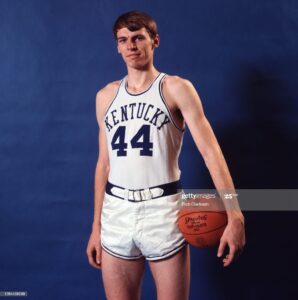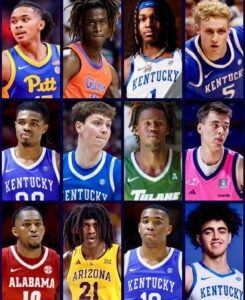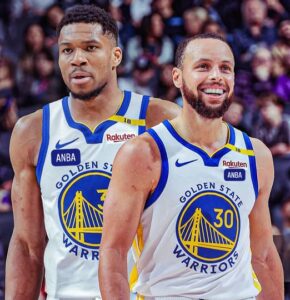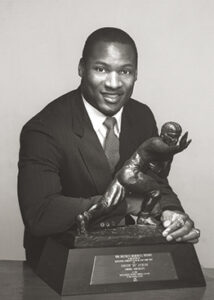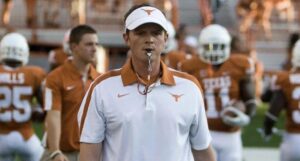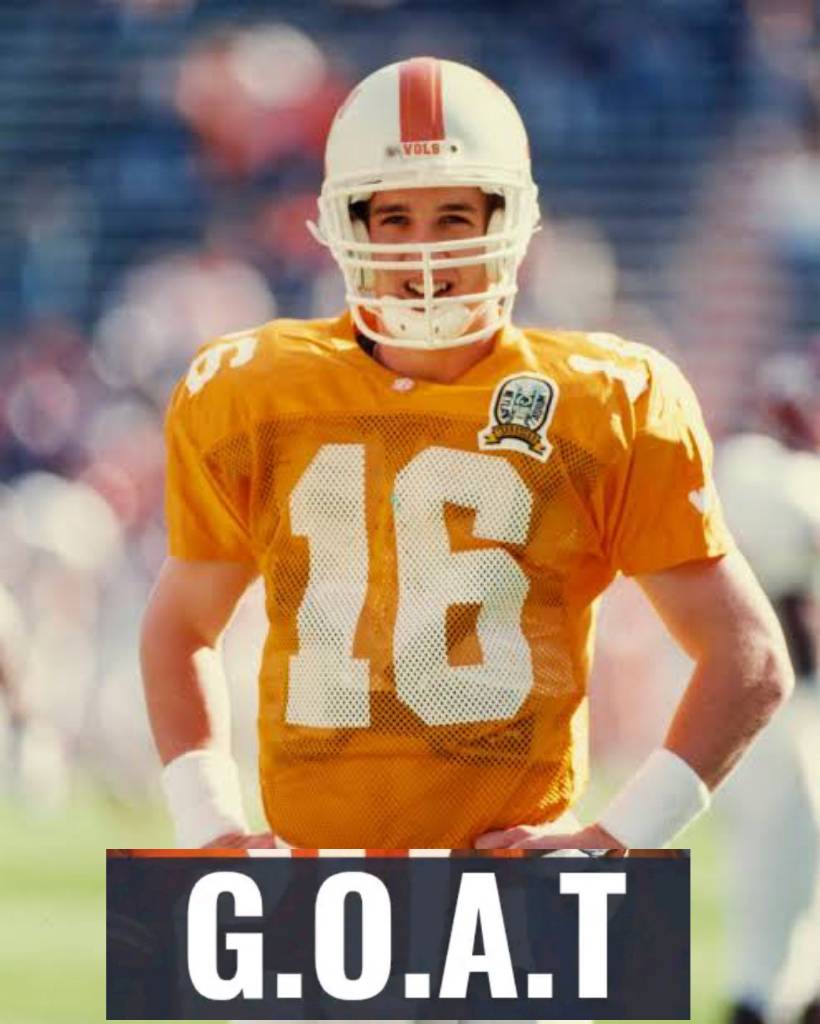
Peyton Manning Named College Football’s Greatest of All Time: A Legacy Beyond the Field
In a moment that will be remembered for years to come, ESPN has officially named Peyton Manning the “Greatest of All Time” (GOAT) in college football, an honor that puts him at the pinnacle of the sport’s history. Manning, a Tennessee Volunteers legend, has undoubtedly left a legacy that transcends the field of play, influencing not just college football but the entire landscape of the sport. The news has reverberated through the football world, as Manning bests some of the greatest players ever to step onto a college gridiron, including Herschel Walker of the Georgia Bulldogs, Tim Tebow of the Florida Gators, and Archie Griffin of the Ohio State Buckeyes.
This accolade, awarded by ESPN after much debate and analysis, encapsulates not only Manning’s individual brilliance but also his lasting impact on college football. As fans, analysts, and former players reflect on his journey from Knoxville to the NFL, it becomes clear that his place in the sport’s history is not just deserved, but monumental.
Peyton Manning’s story in college football is one of perseverance, excellence, and unmatched leadership. Born in New Orleans, Louisiana, Peyton was the son of Archie Manning, a former NFL quarterback, which meant that football was in his blood. While his father’s professional career set a high standard, Peyton’s journey to greatness would be uniquely his own.
Manning’s recruitment to the University of Tennessee was a significant moment for the program. In 1994, as the most coveted quarterback prospect in the nation, he chose Tennessee over a host of other top schools, including arch-rival Alabama. From the moment he stepped onto the field, his abilities were evident.
During his freshman year, Manning quickly proved that he was no ordinary quarterback. He played in all 11 games in 1994, setting a foundation for his remarkable future at Tennessee. Although the Volunteers did not immediately capture championships, Manning’s skill and composure made it clear that Tennessee had a special talent on their hands. His sophomore year saw improvement, and by the time he was a junior, Manning was dominating college football with his passing accuracy, football IQ, and leadership qualities.
Manning’s numbers during his time at Tennessee speak for themselves. He threw for over 11,000 yards in his college career, along with 89 touchdown passes. However, it wasn’t just the statistics that stood out; it was his ability to perform under pressure. Manning led Tennessee to multiple bowl games and was particularly spectacular in his senior year, where he finished as the runner-up for the prestigious Heisman Trophy, an award that went to Charles Woodson of Michigan that year.
Peyton Manning’s career at Tennessee was defined by consistency, excellence, and the pursuit of greatness. He never won a national title in college, but his individual performances were rarely matched in the history of the sport. His leadership in key games, especially in victories against rival schools like Alabama, Florida, and Georgia, made him a household name.
Perhaps one of Manning’s most enduring moments at Tennessee came in the 1998 Citrus Bowl, where he led the Volunteers to a dramatic win over the Penn State Nittany Lions. His leadership helped guide the Volunteers to an impressive 9-3 record that year, further solidifying his reputation as one of college football’s premier quarterbacks.
While Manning didn’t capture a national championship during his college career, his lasting impact was undeniable. The closest he came to a national title came in 1997 when the Volunteers finished as the No. 4 ranked team in the nation. But even without a national championship, Manning’s career has become a symbol of excellence in college football.
Peyton Manning’s selection as the GOAT is a testament to his unparalleled contributions to college football. However, the debate about who is the greatest of all time has always been filled with controversy, given the plethora of other legendary players who have graced the college football field. Manning was up against some of the most iconic figures in the sport’s history, including Herschel Walker, Tim Tebow, and Archie Griffin, each of whom left an indelible mark on college football.
Herschel Walker’s name is synonymous with college football greatness. Walker, who played for the University of Georgia from 1980 to 1982, was a force of nature on the field. He won the Heisman Trophy in 1982 and led the Bulldogs to a national championship in 1980. Over the course of his career, Walker amassed 5,259 rushing yards, a staggering total that still ranks among the best in college football history.
Walker was known for his rare combination of speed, strength, and agility, and his ability to dominate defenses was unlike anything seen in his era. He was a man among boys on the field, and his contributions to Georgia football have made him an icon in the sport’s history.
However, despite his unmatched individual brilliance and national title, many argue that Peyton Manning’s impact on the quarterback position and his influence on college football’s evolution as a pass-heavy league gives him the edge over Walker. Manning’s career transformed the quarterback position, pushing the sport toward the era of elite passing offenses that dominate the game today.
Tim Tebow, the Florida Gators’ legendary quarterback, was another player whose name came up in the GOAT discussion. Tebow’s college career was nothing short of historic. He won two national championships with Florida in 2006 and 2008 and was awarded the Heisman Trophy in 2007. Known for his gritty play and incredible leadership, Tebow became one of the most beloved and polarizing figures in college football history.
Tebow was a dual-threat quarterback who had the ability to both throw and run, making him a nightmare for defenses. His resilience and determination led to some of the most memorable performances in college football history, particularly during his time under coach Urban Meyer.
But despite his incredible success, including two national titles and his Heisman win, Tebow’s college career does not have the same longevity as Manning’s. Manning’s consistency over four seasons at Tennessee helped define his legacy, and while Tebow’s impact was significant, it doesn’t match Manning’s sustained excellence and professional success.
Archie Griffin, the only two-time winner of the Heisman Trophy, was one of the most dominant running backs in college football history. His time at Ohio State was marked by dominance and consistency, with Griffin rushing for over 5,500 yards in his career. His two Heisman wins (1974 and 1975) were unprecedented at the time and cemented his place in college football lore.
While Griffin’s achievements are legendary, his position as a running back, rather than a quarterback, naturally limits the comparison to Manning, whose influence on the game as a signal-caller has had a more profound and lasting effect on the sport. Manning’s ability to direct offenses, create explosive plays, and adapt to an evolving game makes him a more transformative figure in the grand narrative of college football.
Peyton Manning’s legacy is far from confined to his college years. While he became an NFL legend, leading the Indianapolis Colts and later the Denver Broncos to Super Bowl titles, his college career remains a defining chapter in his story. Manning’s ability to raise the level of play around him, his professionalism, and his relentless pursuit of perfection made him a role model for aspiring athletes everywhere.
Moreover, Manning’s influence on the college game helped shift the focus to the passing game, inspiring generations of quarterbacks to model their play after him. His approach to preparation, film study, and leadership set new standards for what it meant to be an elite quarterback.
As the first overall pick in the 1998 NFL Draft, Manning went on to rewrite the record books in the NFL, but it is his college legacy that remains a central part of his persona. Manning’s impact on college football cannot be overstated, and this recent honor from ESPN reinforces his place as the GOAT of the sport.
Peyton Manning’s selection as the Greatest of All Time in college football is a well-deserved recognition of a career that changed the sport forever. His time at Tennessee was marked by his relentless pursuit of excellence, and his success helped define an era of college football. While others like Herschel Walker, Tim Tebow, and Archie Griffin certainly left their marks on the game, Manning’s overall influence on the position of quarterback and the game itself sets him apart as the greatest college football player to ever play the game.
For Manning, the honor is a testament to not just his individual talent but to his leadership and the legacy he left at the University of Tennessee. As we reflect on his career, one thing is certain: Peyton Manning will always be remembered as one of the greatest, if not the greatest, college football players of all time.
